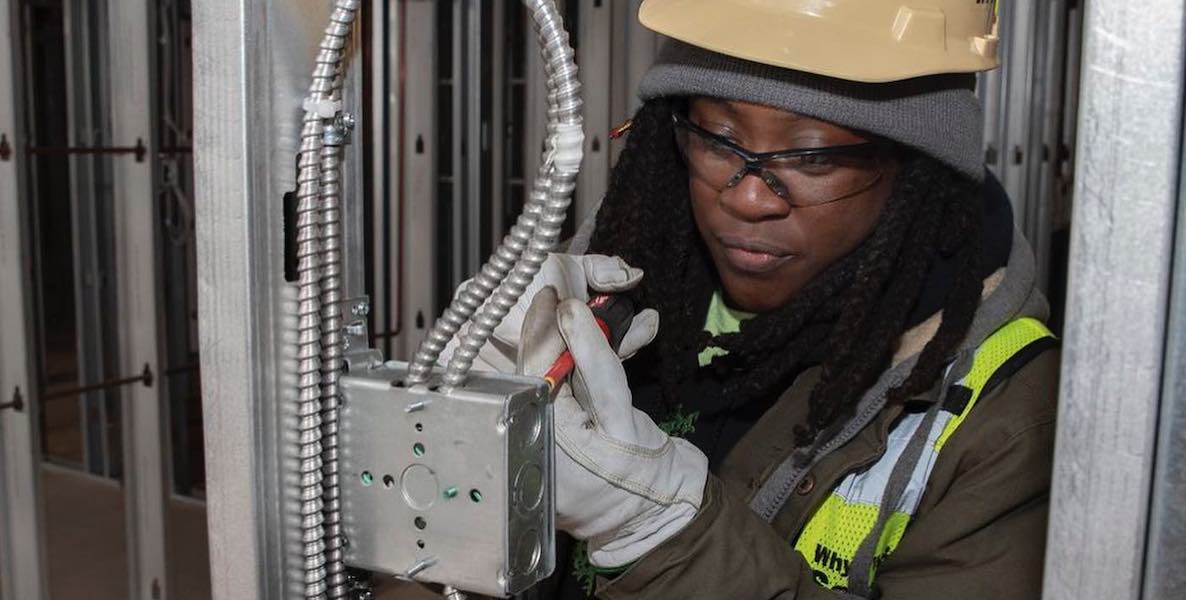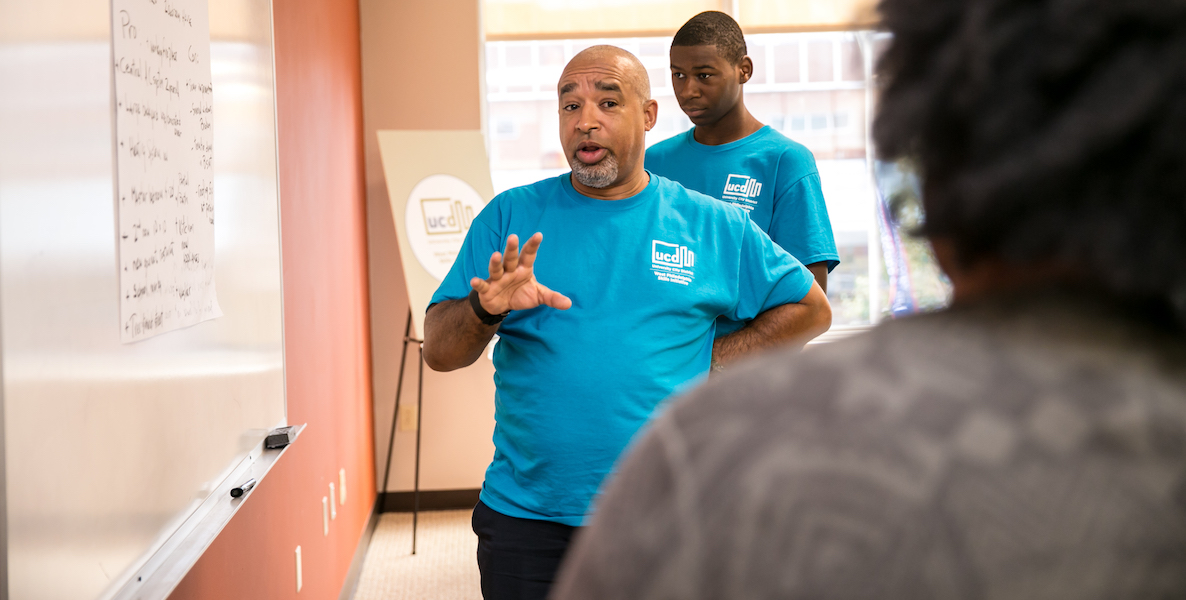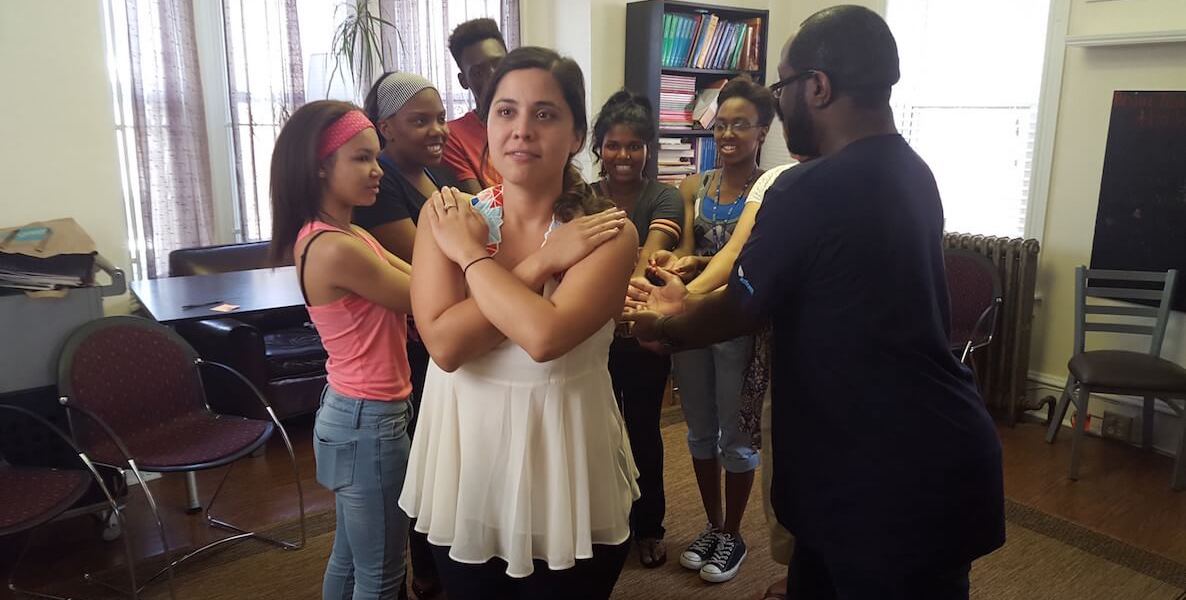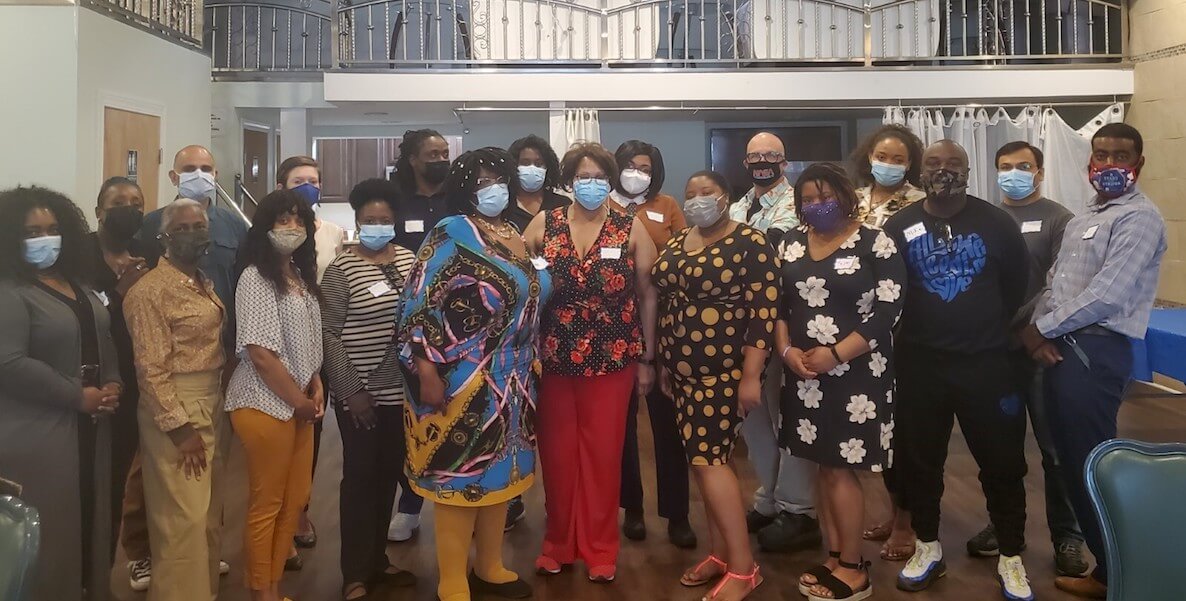Don’t laugh, Tim Thornton says.
He has an idea, and he knows it sounds crazy. But he shares it, and…? Turns out, it’s really nothing to laugh at—it’s actually an idea that many others have likely harbored too! (Maybe, even, you have?)
It’s this: that every family in the region, if not the nation (world?), should be buddied up with a family in another part of town. Families in Malvern with those in West Philly; Gladwyne with Kensington; Bryn Mawr and Brewerytown.
“If you make a connection with someone, and you see their issues, you’re gonna help them if you can,” says the Delco native. “And you’re gonna be able to help them in ways you didn’t even know you can.”
This grand vision is not about one family asking another for money—but both families understanding how they can help each other.
“I just feel like the government is not going to save us, the establishment isn’t gonna get it done,” Thornton says. “If we’re gonna make a difference, we have to do it together. It has to have that communal connection.”
That same spirit of connection, of building bridges, is at the heart of the latest endeavor Thornton is co-spearheading: Project Tech-up. It’s a 12-week pilot program to train 15 people from West Philly’s Haddington Cobbs Creek neighborhood to become Salesforce administrators—Salesforce being the ubiquitous computer platform countless organizations around the world use to interact with customers.
A Salesforce administrator’s starting salary can start at $40,000, and the training Tech-up uses is the same proprietary one companies typically pay to send their employees to experience; operating as a nonprofit, Tech-up is able to access it for free.
It’s a plan Thornton hatched with Sandeep Banga, CEO of Acutedge, and Grant Acosta, a Senior Manager at Simpus, and it’s being executed in partnership with ACHIEVEability, the West Philly nonprofit that, since 1981, has focused on interventions to alleviate poverty. Thornton was ACHIEVEability’s Board Chair for 12 years, until 2018, and has been involved with the organization since 1999.
And he’s basically spent his entire adult life straddling the worlds of business, philanthropy, and community-building: He worked for more than 30 years at Vanguard, running, among other initiatives, vanguard.com for more than a decade. He was president of his church. He’s raised more than $150,000 for the Jefferson Hospice. And he spent three years running 311 for the City of Philadelphia—which is where the germ of the idea for Project Tech-up was born.
 It was while running 311 when Thornton met Banga; 311 was a client of Banga’s company, which consults on Salesforce implementation and training for nonprofits. Thornton had seen a presentation about the power of jobs to reduce recidivism, and he and Banga got to talking about creating a program that would train incarcerated women to learn Salesforce to, eventually, become 311 operators.
It was while running 311 when Thornton met Banga; 311 was a client of Banga’s company, which consults on Salesforce implementation and training for nonprofits. Thornton had seen a presentation about the power of jobs to reduce recidivism, and he and Banga got to talking about creating a program that would train incarcerated women to learn Salesforce to, eventually, become 311 operators.
They worked with the prisons commissioner and deputy commissioner and with judges to get rooms at Curran-Fromhold Correctional Facility set up for teaching and learning. “We had everything ready to go. And then, of course, the city sort of did their thing and crapped on it,” Thornton says, for unclear reasons, something “related to unions.”
Once both men left their respective roles at 311 and became private citizens, though? They decided to try doing the program on their own.
MORE AWE-INSPIRING PHILADELPHIANS
Then—cue groan—Covid hit. Determined not to give up, Thornton reached out to Jamila Harris-Morrison, executive director at at ACHIEVEability, about his frustration; she proposed launching the program in partnership, tapping into ACHIEVEability’s network and infrastructure and space, to be able to conduct in-person teaching in addition to a virtual option.
Harris-Morrison applied for and got a $40,0000 grant; Thornton secured donations to bring that total to more than $60,000; Banga recruited volunteer instructors from his extensive global network. “It was magical,” how it all started to come together, Banga says. “I don’t know any other way to describe it.”
Now, 15 participants from all walks of life—a retired Navy veteran, several single mothers, a young man who couldn’t afford to keep paying college tuition, to describe just a few students—are paid $15 per hour, for 40 hours per week of rigorous training, so that they’re not torn between having to work and wanting to learn.
If Banga could ask anything of people in our city, it would be for those in positions to employ others to shift their mindset, to be open to nontraditional candidates, to rethink what a Salesforce administrator looks like and where she or he comes from.
The day-to-day curriculum is run by ACHIEVEability program manager Renee Bean, a pillar whom Thornton and Banga say has been critical to Tech-up’s operations. “We couldn’t do this work without Renee,” they both insist. In August, participants will take the Salesforce administrator test. And when they pass—and they will, Thornton just knows it—the goal is for them to find meaningful work.
And that’s the difference between Project Tech-up and other feel-good “tech training,” Banga explains. “Training somebody in Microsoft Excel or Microsoft Office is not going to get them a job,” he says. “Let’s be realistic about that.”
Salesforce is an in-demand and marketable skill throughout the world. There are similar Salesforce programs to train veterans, and others, like one in Boston that the Tech-up team consulted, that target members of multi-generational families to learn together. Entry-level, first-time Salesforce Administrators will likely make in the low $40,000 range—but from there, they could advance up to as much as $80,000, nearly triple our city’s average income of $27,924.
Of course, that income hinges on Project Tech-up securing jobs—interviews, for starters—to their grads. And that’s where Thornton and Banga are now—leveraging their networks, at Vanguard and Comcast, PECO and Exelon and employers around the city, through LinkedIn and email and texts, to try to secure opportunities for the adults in the program. In mid-July, several participants will have access to an online job fair sponsored by Salesforce; one West Chester-based company recently offered to meet with candidates, too.
“It’s a damn shame when there are people that can make it, and they just don’t get that spark, they don’t get that little bit of help that so many others can count on from their family or built-in safety net,” Thornton says.
“It’s in the works, and it will continue to be in the works. I think that’s probably the most challenging part of what we’re doing, is to get people employment, to get them a shot,” Banga says. He’s committed to making it happen. “I’m not just spending all of this time to create another ‘training program’ to give someone a certificate,” he says. “We are all about changing lives, and that won’t happen unless somebody gets employed.”
No, employing 15 people will not solve poverty in Philadelphia, the poorest big city in America. But if this program is successful, and replicable? That’s where the needle can really start to move.
So if Banga could ask anything of people in our city, it would be for those in positions to employ others to shift their mindset, to be open to nontraditional candidates, to rethink what a Salesforce administrator looks like and where she or he comes from.
“There will always be people in society that can’t make it, but it’s a damn shame when there are people that can make it, and they just don’t get that spark, they don’t get that little bit of help that so many others can count on from their family or built-in safety net,” Thornton says.
For his part, he’s banking on connections and community to pull through.
“I just feel like the government is not going to save us, the establishment isn’t gonna get it done,” Thornton says, this time without any disclaimer about laughing at him or his idea. “If we’re gonna make a difference, we have to do it together. It has to have that communal connection.”
The Citizen is one of 20 news organizations producing Broke in Philly, a collaborative reporting project on solutions to poverty and the city’s push towards economic justice. Follow the project on Twitter @BrokeInPhilly.
Project Tech-up's 2021 cohort, shown here with Thornton (sixth from right) and Banga (fourth from left) as well as ACHIEVEability's Carly Maurer and Katrina Brittingham.







